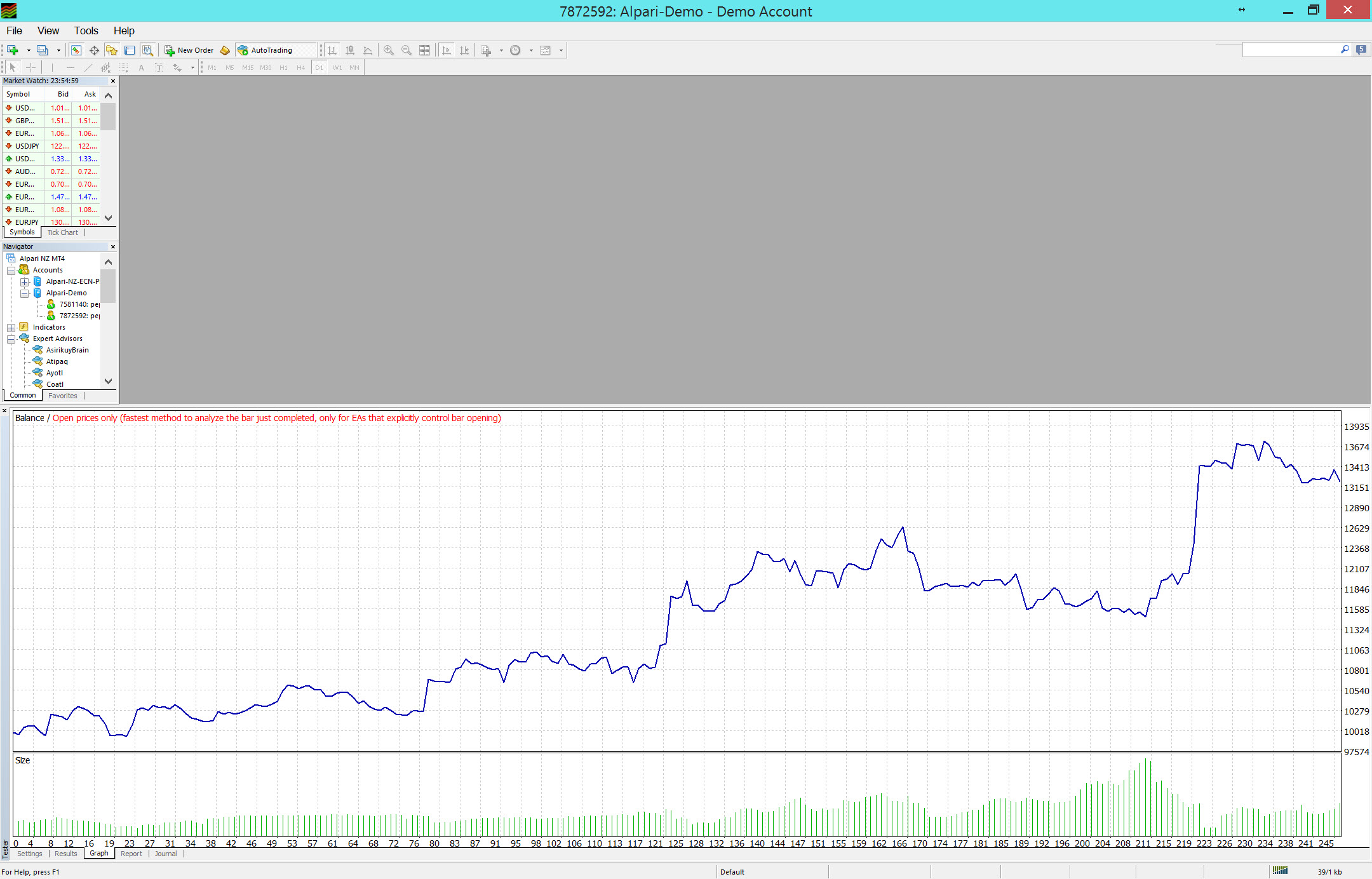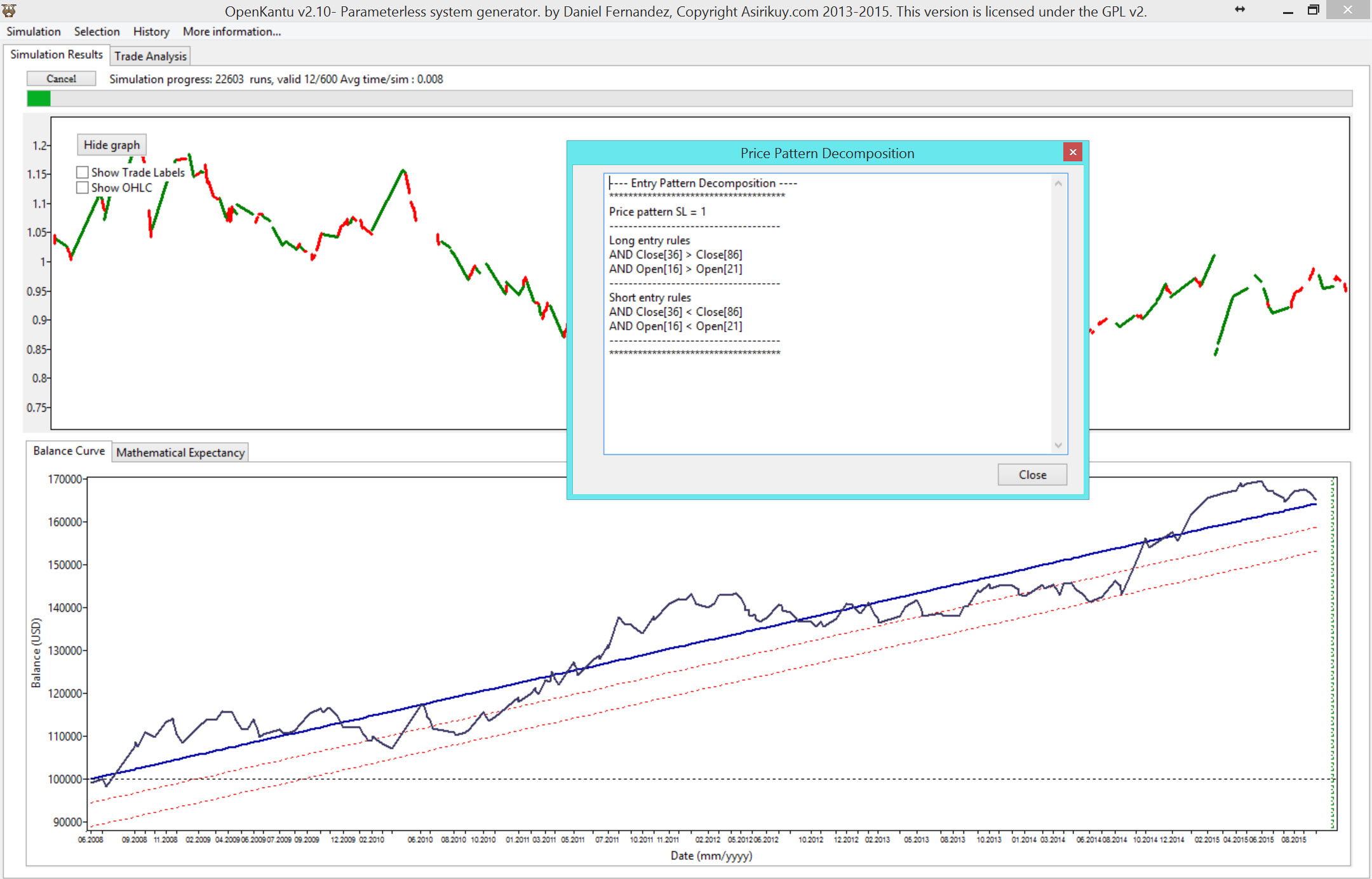In early 2015 I decided to release the kantu price action based system generator developed at Asirikuy for the wider use of the trading community as the free and open source software OpenKantu. This software has been online for quite a while now but has not seen any wide use by the Forex trading community despite the fact that it could be used for the generation of historically profitable strategies using fast multi-core simulations. Pondering about why this has been the case and why people have used it in such a limited manner I decided to review user opinions and fix problems that might have made the software difficult to use for less experienced traders and programmers. On today’s post I want to share with you some of the changes I have made and why I think this may lead to a wider adoption or at least experimentation with the software.
–
–
The first problem that people found with the use of openKantu seems to have been the loading of the historical data. The software accepted OHLC data in a format that required dates to be in the form “dd/mm/yyyy hh:mm” while the format that the historical data center in MT4 uses is of the form “yyyy.mm.dd, hh:mm”. This basic incompatibility meant that people couldn’t simply use data exported from the MT4 platform but needed to export data using a tool that came with the program called the RecordBarsMT4 expert advisor. However it seems that many people did not know how to properly use the expert, leading to several problems with the generation of the data with the most common being people running the data saving expert on “every tick” or “control points” modes which created duplicates of the OHLC data and therefore inadequate exporting. To fix this problem the software has now changed the date format to the MT4 exported format (“yyyy.mm.dd, hh:mm”), meaning that data exported directly from MT4 can now be used directly in openKantu, no more RecordBarsMT4 expert to deal with and much simpler loading for traders.
The second problem that I saw was related to several functions within the software that had been incorrectly refactored when changing from the previous asirikuy version of kantu to the open source openKantu. Some functions were there but did nothing while others did not work properly. For example the use of exit patterns had been removed but the single system simulation dialogues and the price pattern pseudo code generator still seemed to print exit patterns that had nothing to do with actual trading logic. There were also problems with the saving of configuration files and the restoration of configuration values. Overall all these problems might have made the software quite unfriendly to users who did not understand why some things did not seem to have any effect and others appeared to show irrelevant information. All the reported problems (plus a few others I saw) have now been fixed and the software now behaves in line with user expectations.
The last problem I want to comment on was actually caused by the updating of the ZMSQL dependency in Lazarus which is incompatible with the one that came with OpenKantu. This means that anyone who wanted to modify the program was running into problems caused by wrong function calls and similar issues due to a general lack of legacy support in the latest ZMSQL releases. This was certainly a huge turn off for programmers who wanted to contribute to the code since they couldn’t get the software to compile, even without changing anything. These problems have now been fixed and OpenKantu now compiles perfectly fine on Linux and Windows using the latest versions of the ZMSQL libraries.
–
–
All these changes to the OpenKantu software should now make it easier to use and easier to code with. Data loading and reproduction of results between OpenKantu and MT4 should now be a breeze (since you can simply export data directly from MT4 to use in OpenKantu) plus the usage of the program should be simplified by a more polished interface and a working configuration saving module that ensures that your filters and generation configuration parameters are kept when you close the program. Coding is now fully compatible with latest dependency libraries and linux binaries have also been made available for those who want to run the software on Linux platforms without the need to compile things themselves.
If you have any opinions about the new version of the OpenKantu software please feel free to comment on this post or the software’s main page. Also please remember that a much more advanced version of the software called pKantu (which does system generation using GPU technology at about 100-1000x the speed of openKantu) is available for Asirikuy.com members.







